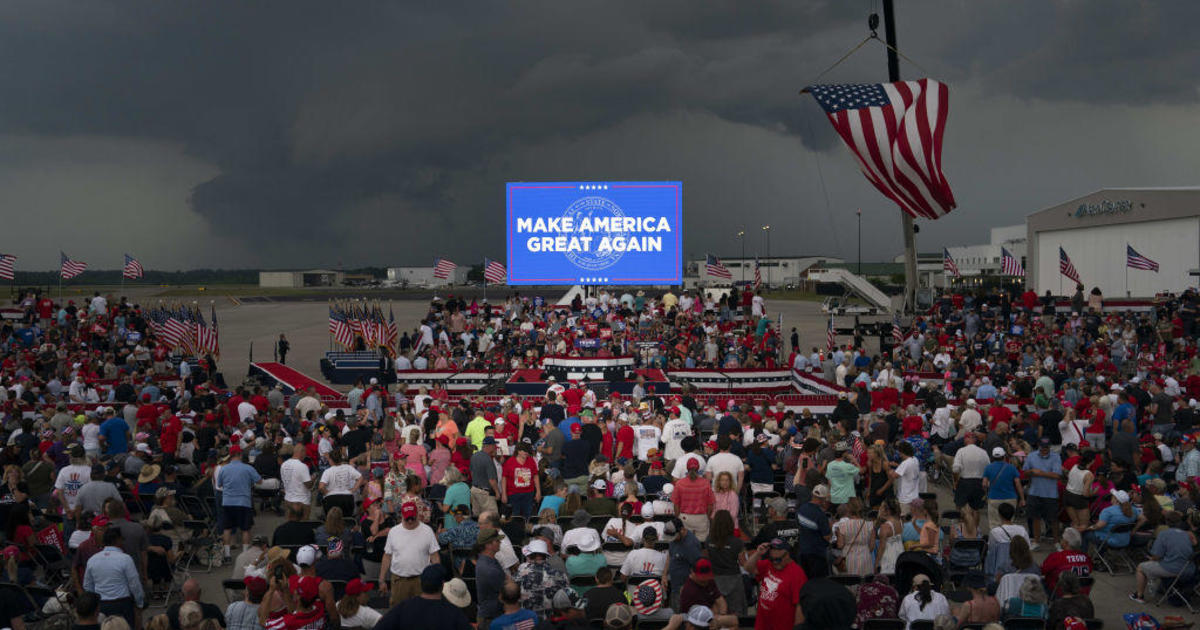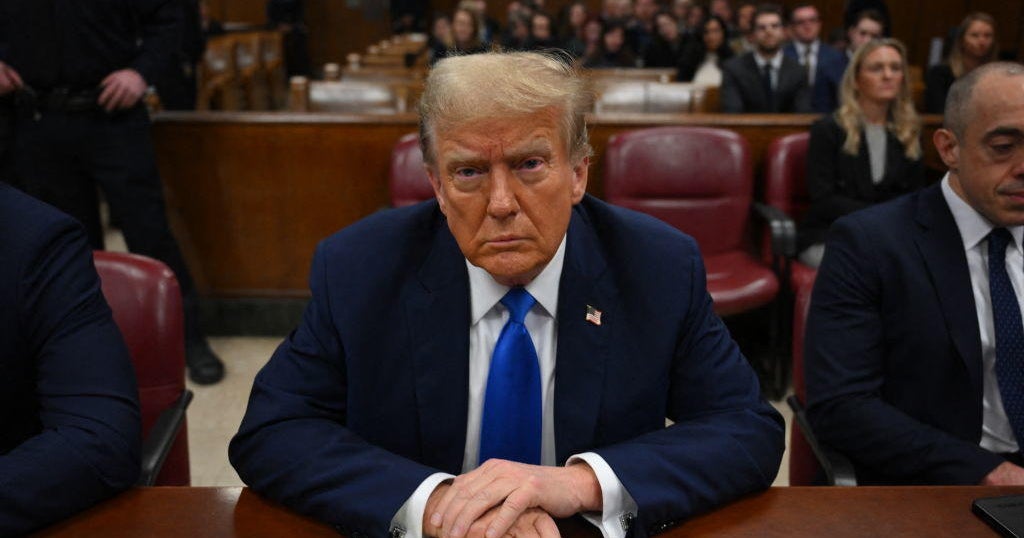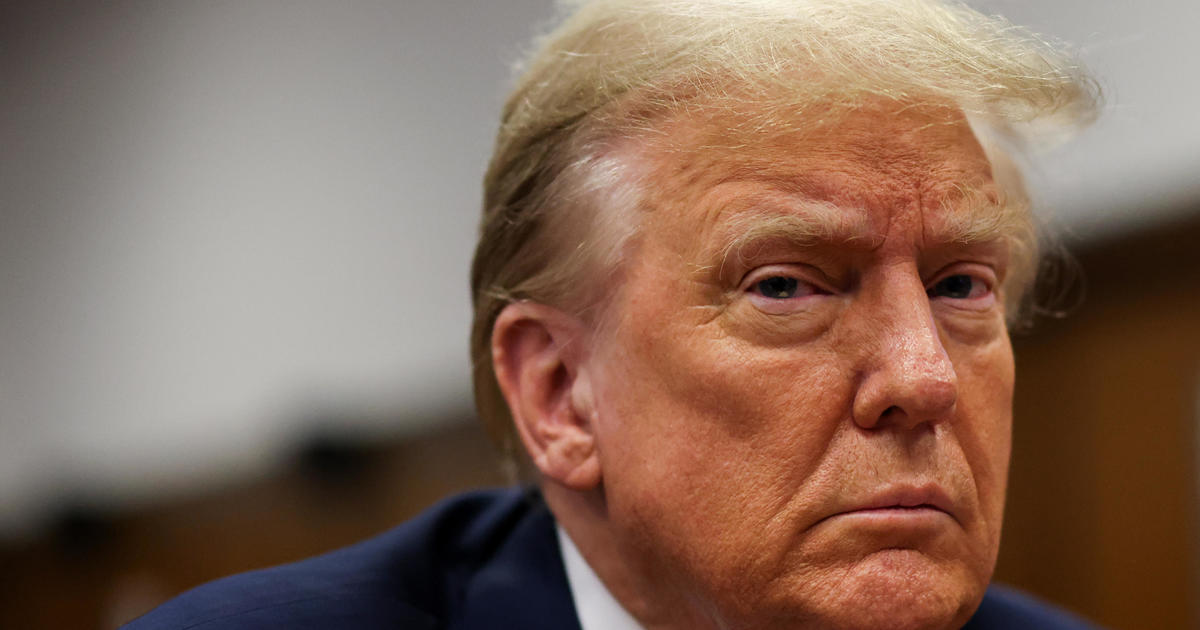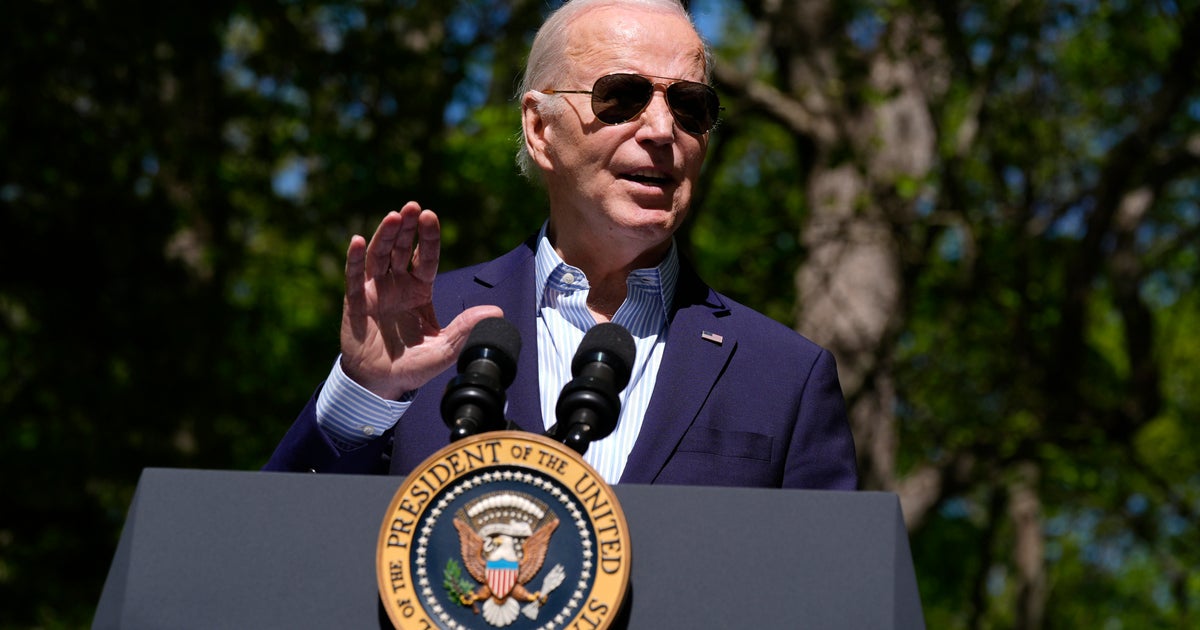Trump delivers his first address to U.N. General Assembly
NEW YORK -- President Donald Trump made his debut at the United Nations, taking his complaints about the world body straight to the source.
"The United Nations must hold every level of management accountable" and make sure no country shoulders a disproportionate share of the burden, he said Monday morning in an address to a U.S.-sponsored event on reforming the 193-member organization he has sharply criticized.
In the address, his first at the U.N. as president, Mr. Trump also said that in recent years, the U.N. has not reached its full potential "because of bureaucracy and mismanagement. And even though its budget has increased 140 percent, "we are not seeing the results in line with this investment."
But, he said, if the U.N. succeeds in winning bold reforms, it can be a greater force for good, peace and harmony in the world.
The president also said he's seen "great potential across the street," where a Trump condominium building stands.
As a candidate for president, Mr. Trump labeled the U.N. as weak and incompetent, and not a friend of either the United States or Israel. But he has softened his tone since taking office, telling ambassadors from U.N. Security Council member countries at a White House meeting this year that the U.N. has "tremendous potential."
The president more recently has praised a pair of unanimous council votes to tighten sanctions on North Korea over its continued nuclear weapon and ballistic missile tests.
But Mr. Trump's big moment comes Tuesday, when he delivers his first address to a session of the U.N. General Assembly. The annual gathering of world leaders will open amid serious concerns about Trump's priorities, including his policy of "America First," his support for the U.N. and a series of global crises. It will be the first time world leaders will be in the same room and able to take the measure of Trump.
The president and U.N. Secretary-General Antonio Guterres both spoke at Monday's reform meeting. The U.S. has asked member nations to sign a declaration on U.N. reforms, and more than 100 have done so. Mr. Trump wants the U.N. to cut spending and make other operational changes.
Nikki Haley, the U.S. ambassador to the U.N., said of Mr. Trump's criticisms that they were accurate at the time, but that it is now a "new day" at the U.N. An organization that "talked a lot but didn't have a lot of action" has given way to a "United Nations that's action-oriented," she said, noting the Security Council votes on North Korea this month.
Guterres has proposed a massive package of changes, and Haley said the U.N. is "totally moving toward reform."
"We said that we needed to get value for our dollar and what we're finding is the international community is right there with us in support of reform. So it is a new day at the U.N.," she said Sunday on CNN's "State of the Union." She said Mr. Trump's pleas had been heard and "what we'll do is see him respond to that."
Mr. Trump also planned to hold separate talks Monday with Israeli Prime Minister Benjamin Netanyahu and French President Emmanuel Macron. U.S. national security adviser H.R. McMaster said the conversations would be wide-ranging, but that "Iran's destabilizing behavior" would be a major focus of Trump's discussions with both leaders.
Breakthroughs on a Middle East peace agreement are not expected. Jared Kushner, Trump's son-in-law and senior adviser on the issue, recently returned from a trip to the Middle East.
The president told Jewish leaders on a conference call last week that his team is working very hard to achieve a peace agreement between the Israelis and Palestinians and that he hoped to see "significant progress" on a deal before the end of the year. Mr. Trump is scheduled to meet later this week with Palestinian Authority President Mahmoud Abbas.
Mr. Trump was also hosting a dinner for Latin American leaders. Venezuela, which has been gripped by economic and political turmoil, will be discussed, McMaster said.
The United States is the largest contributor to the U.N. budget, reflecting its position as the world's largest economy. It pays 25 percent of the U.N.'s regular operating budget and over 28 percent of the separate peacekeeping budget - a level of spending that the president has complained is unfair.
"We need the member states to come together to eliminate inefficiency and bloat, and to ensure that no one nation shoulders a disproportionate share of the burden militarily or financially," Mr. Trump told the security council ambassadors as they dined at the White House in April. "This is only fair to our taxpayers."
The Trump administration is conducting a review of the U.N.'s 16 far-flung peacekeeping operations, which cost nearly $8 billion a year. Cutting their costs and making them more effective is a top priority for Haley.
Guterres has said he is totally committed to reforming the U.N. and making it more responsive to the needs of the 21st century world. As for the peacekeeping budget, he said last week that his intention is to do everything possible to make the missions "the most effective" as well as "cost-effective."



